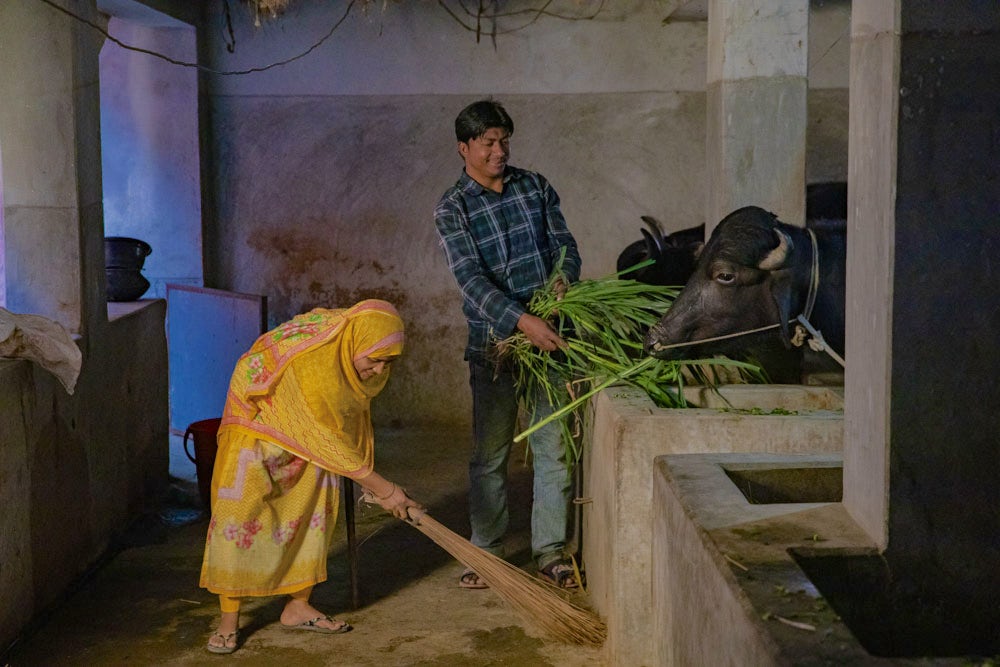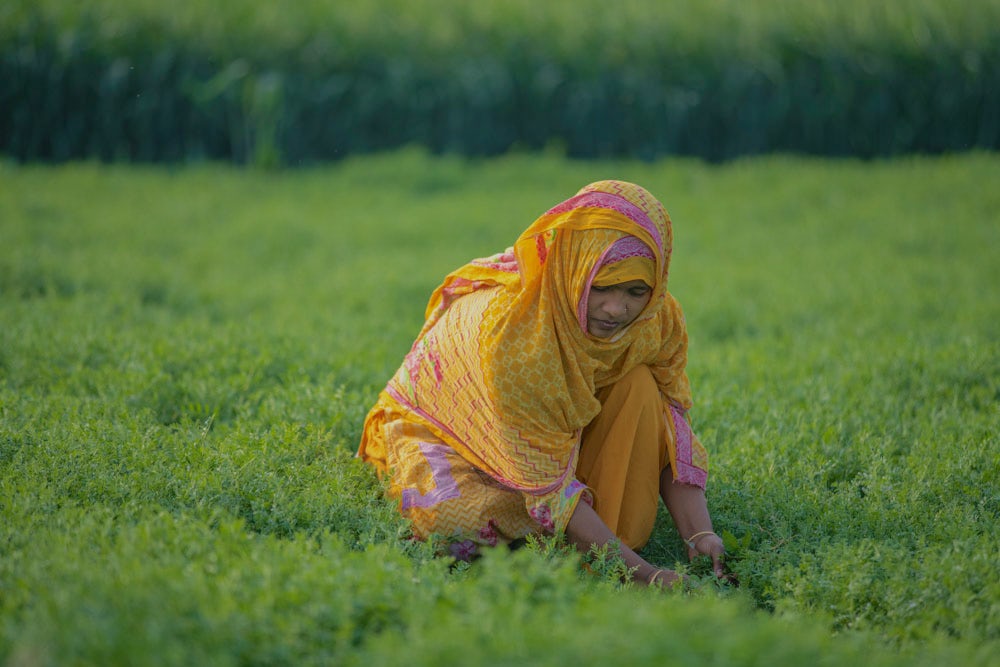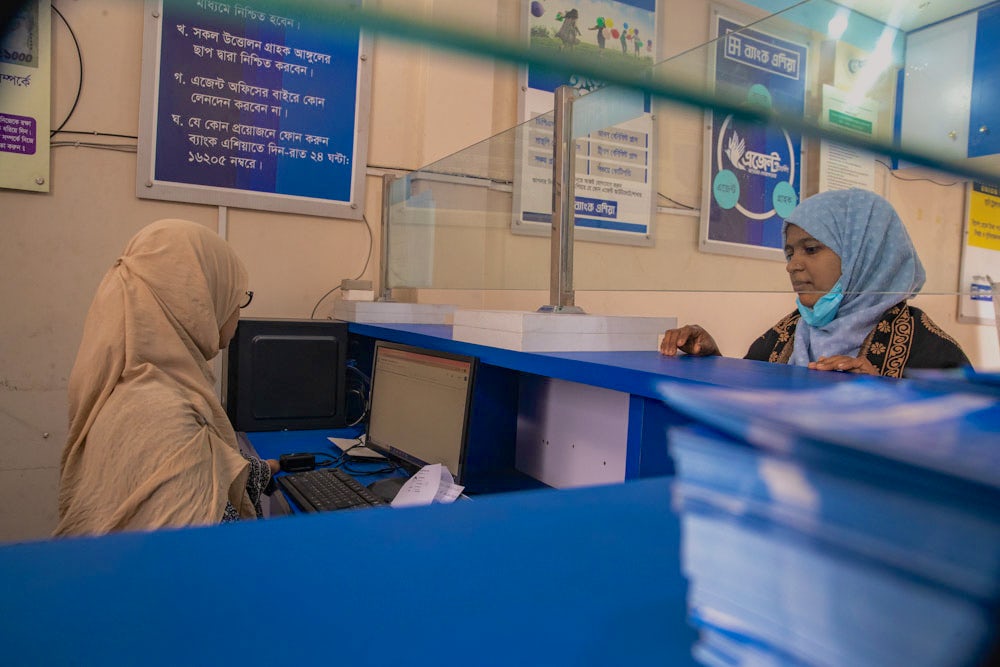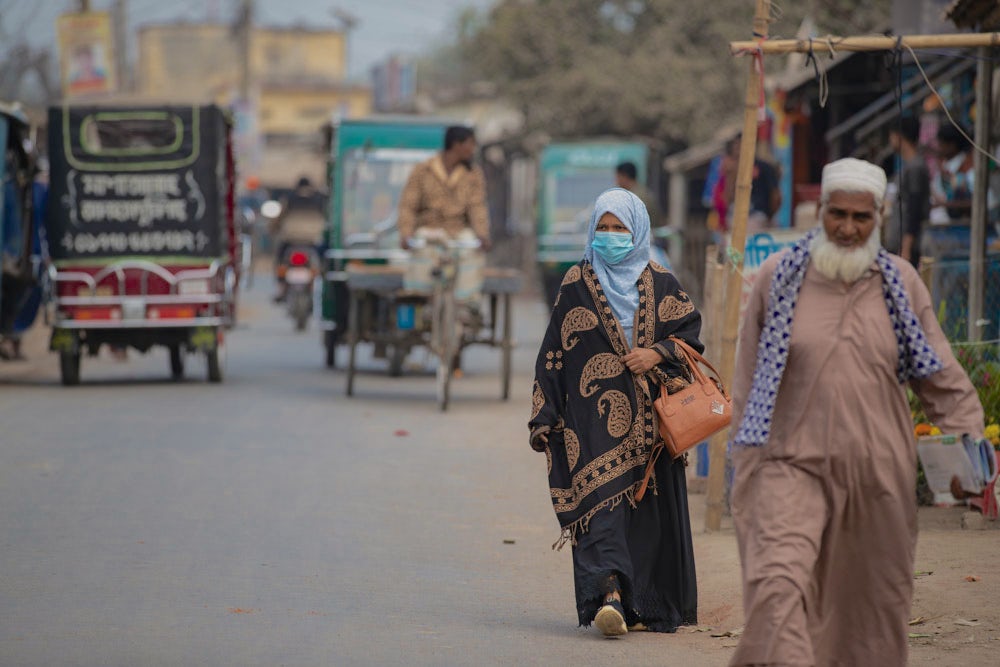Marzan Khatun lives with her husband, their 9-year-old son, Tavur, and her in-laws in Rajshahi, Bangladesh.
A 29-year-old mother and smallholder farmer, she supports her family with a rigorous daily routine starting at 5 a.m. First, she completes the household chores, then the various tasks associated with tending the cattle and, after the family and the cows are fed, she holds a part-time job to help with expenses.
Despite her steadfast dedication, there has been little opportunity to progress over the years.

“When I got married, the economic condition was fine,” she said. “We could afford basic needs but not a good standard of living, not a dignified life.”
There are many obstacles in the way of smallholder farmers like Marzan strengthening their farms to be more productive and resilient sources of income. Among the greatest challenges is access to credit, especially for women farmers.
A loan to buy seeds, tools or fertilizers can make a big difference for women producers, who are often responsible for most of the farming activities yet typically do not have access to the resources, information or skills that would enable them to access credit or loans to build their businesses.
In June 2014, Marzan had received a Krishi card, a certification issued by the government that proves she is a farmer and enables her to access agricultural inputs at better prices and loans at lower interest rates. But it was when she joined a Heifer-supported self-help group in 2015 that she was connected to the network of support she needed to invest in her future with fewer barriers.

Self-help groups have been core to Heifer’s work supporting farmers over the past 80 years, the community-based peer associations offering safe, productive spaces to facilitate skill-building, social cohesion, and group savings and loans.
After joining the self-help group, Marzan received training on improved animal management, kitchen gardens and business practices. This knowledge enabled her to improve how she reared goats, chickens and buffaloes. She also started a kitchen garden on previously unused family land.
Still, her most important act has been taking a loan.
“When I became a member of the self-help group, I got the opportunity to save money,” Marzan said, referring to the group savings that doubles as a loan fund for members. “Earlier, I did not have any opportunity or platform.”
Armed with her Krishi card and recent training on crop production, financial literacy and agribusiness from Heifer, Marzan took a loan from her self-help group. She has since repaid it in full.
These grassroots financial inclusion efforts can be a pathway to formal banking and financial services for smallholder farmers. And, for Marzan, it was: In December 2021, she opened a bank account for the first time in her life.

Later, she qualified for a loan of 300,000 Bangladeshi taka, about $2,707, from Bank Asia through an agreement between the bank and Heifer’s impact investing arm, Heifer Impact Capital (HIC).
The agreement, also signed with BRAC Bank, requires HIC to guarantee deposits of $50,000 and $100,000 to Bank Asia and BRAC Bank, respectively. In return, the banks provide loans to eligible Heifer households. The loans to Heifer project farmers help them grow incomes, increase farm productivity and improve market access.
To further foster financial inclusion, Heifer and HIC provided women farmers with training for about a year on how to increase farm productivity so they could qualify for the loans and meet their repayment obligations.
Between July 2022 and June 2023, about 800 women like Marzan accessed loans from Bank Asia and BRAC Bank. A recent study conducted by Heifer shows loan recipients under this project witnessed up to 1.3 times higher crop production and increased incomes.

For Marzan’s part, she repaid the initial loan from Bank Asia in full and then took a second one. This is a huge achievement in a society where women’s participation in agriculture is largely not recognized. Her farm has since grown to include two new pieces of land, five buffalo, seven goats, 15 chickens, fish, a mango garden and a red lentil field — all bolstered by the support of her self-help group and the access to resources it provides.
“Earlier we had no opportunity to go [work] outside, [but] now we are able to move as we like,” she said. “Earlier, we could not talk in front of people, but now we can do that. We had no confidence, but now we have it.”